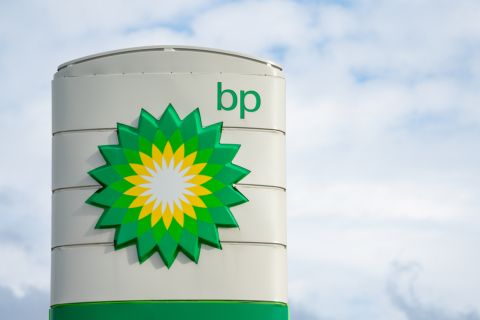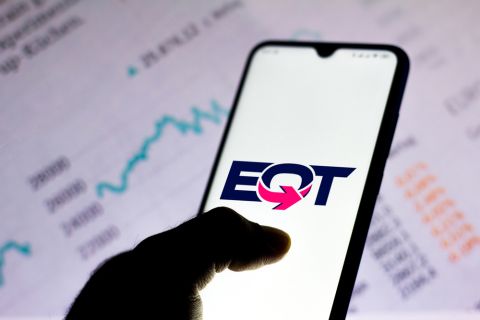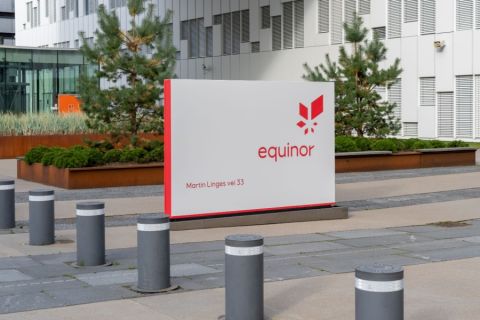Malaysia's service industry has risen to the challenge of providing world-class service to the sizable domestic market. It has matured and may now be looking to expand in the entire region. From the outset, the development of the Malaysian oil and gas support service companies has been linked to the expansion of state-owned Petronas. Continuing its drive to increase local participation in the oil and gas sector, the company was dedicated to building a strong support base to help it in its role in assuring the country's energy supply. The success of Petronas, now a worldwide player, has thus been mirrored by the world-class development of Malaysian service companies. The oil and gas sector is set to emerge as the new key driver of the Malaysian economy this decade. The sector is the largest taxpayer and the biggest hard-currency earner. By 2007, contributions are expected to reach 21.7% of federal revenue. Moreover, the sector is the largest recipient of direct investment. In 2002, approved investments by the Malaysian Industrial Development Authority (MIDA) in the electrical and electronics (E&E) sector and petroleum products totaled 4.9 billion Malaysian ringgits and 5.7 billion, respectively. Including exploration and production (E&P) investments, the oil and gas sector has outshined E&E as the country's largest recipient of direct investments. According to Thong & Kay Hian Securities, in the next few years, spending on oil and gas will exceed that on infrastructure. E&P spending alone reached more than 10 billion ringgits in 2003. Based on the Eighth Malaysia Plan, the government only has 6 billion ringgits a year to spend on infrastructure projects. The oil and gas sector is set to replace construction as the epicenter of large contracts. Finally, the value-add of the mining and quarrying sector (mostly oil and gas) is more than six times that of E&E, even though its contribution to gross domestic product (GDP) is only 9.4%. Every additional 2.5-billion-ringgit investment in the oil and gas sector can potentially add 0.5% to GDP growth. Undoubtedly, Petronas has played a key strategic role in fueling the development of a solid supply chain to the offshore oil industry. Petronas has endeavored to get as many local companies as possible to assist in the development of the country's oil and gas resources. The strategy is certainly an old formula. The plan, which consisted of insisting that foreign operators put local content in their production activities associated to the "revenue over cost" concept (R/C production-sharing contract), smacks of protectionism, but has ensured that local companies benefit from predictable and viable streams of orders and are favored partners in joint ventures. To favor effective local participation in the oil and gas industry, Petronas has adopted an integrated approach. This involves favoring indigenous companies when awarding contracts and licenses and implementing a vendor-development program (VDP), which is an affirmative action program for the Bumiputra (the indigenous race of Malaysia, as opposed to citizens of Chinese and Indian origin). To encourage foreign investment and technology transfer, the Malaysian government offered tax-incentives and other financial motivations. Herein lays a paradox. Sorraya Denney, managing director of Amsito Oilwell Services, a medium-size Bumiputra service company, says, "If Petronas wants to go on moving up the value chain, which in our case means improving the quality of services, there is a real need for further competition on the local market, as well as on the international level. International competition is the best way to benchmark ourselves." Local companies are asking for independence as a way to improve their competitiveness. This suggests that the industry has matured to a point where it is now willing and able to stand on its own feet, and is ready to emerge from the shadow of Petronas. Besides Petronas' national strategy, another initiative is the Cost Reduction Alliance (Coral) which was implemented by the Malaysian petroleum industry in 1994 to meet the challenges of low oil prices and rising operating costs. Together, Petronas, E&P companies and local services companies decided to work together in the definition of best practices and established a forum and guidelines to ensure that they are met across the board. Petronas and its production-sharing contractors (PCSB, Shell and EPMI) embarked on the first phase, identifying three main cost centers: fabrication, drilling, and procurement and contracting. Coral managed to cut costs in the industry by an estimated $342 million (1.3 billion ringgits) over a period of five years. The latest string of achievements by Coral was the recent announcement of the on-schedule completion of a drilling and riser platform for the ANGSI-A project. A 27% savings from the original estimated cost was achieved with 65% of the work undertaken by local contractors. Coral's success during the First Wave was built around major issues affecting the production-sharing contractors, focusing mainly on cost-reduction efforts. Now in the Next Wave (2001-05), Coral aims to ride on this success and strives to bring the service industry further into the fold. The ambition for the industry is to attain competitiveness, "everywhere and anywhere." The Next Wave intends to promote business opportunities through value creation by reducing finding-to-production costs, increasing production/recovery of identified oil fields, accelerating cost-recovery times and enhancing service-sector competitiveness. Today, Malaysia-based service operators range from engineering firms to fully integrated service companies. 2003 was marked by significant merger and acquisition activity among key players, mainly because Petronas' VDP helped small and midsized enterprises (SMEs), consequently fragmenting the market. The consolidation movement will allow the players the critical mass to expand regionally and internationally, which is the aim of many of the larger companies. Petronas has again played a key role. First, local operators, as subcontractors, have been able to build strong domestic positions. Second, by venturing into numerous overseas contracts, Petronas has set the example and led the way. Moreover, Petronas actually started to benchmark Malaysian service companies by including them in its overseas activity. This gave them the opportunity not only to build a reputation but also to demonstrate their competitiveness on an international level. As an engineering contractor, the Ranhill Group services a multitude of industries. Originally, it provided only mechanical and electrical engineering design services as an engineering partnership formed by the Australian engineering concern, Rankine & Hill. Malaysian operations were established in July 1981 and rapidly a complete range of engineering capabilities were attained and ownership became fully Malaysian. "Ranhill stands for excellence not just as engineers and constructors with a growing international presence, but also as the owners and developers of oil and gas facilities," says Tan Sri Hamdan, Ranhill Berhad Malaysia chief executive. The initial development of a broad engineering base had allowed Ranhill to offer a comprehensive range of services so as to be regarded an "engineering supermarket." Full turnkey capability was achieved in 1985. Kamarulzaman Omar, Ranhill executive director, says, "The oil and gas industry has become an important contributor to Ranhill's earnings. This sector covers both upstream and downstream activities. We are constantly chasing acquisition opportunities in order to complete our range of services. Moreover, we are competing and bidding for jobs not only here but also in Pakistan and the Middle East." Another company now entering the global arena is Crest Petroleum, already one of the largest local oil and gas well drilling and marine construction contractors in Malaysia. Crest Petroleum is involved in marine installation and construction, offshore drilling and marine services. Thanks to its latest acquisition, the Sapura Group, Crest Petroleum's services now include not only oil and gas rig management, but also offshore platforms and pipelines installation. Datuk Shahril Shamsuddin, the firm's executive vice chairman, adds, "Where previously we had a division of resources and a duplication of efforts, we now have better economies of scale, increased flexibility and focus on resource allocation as well as the an ability to provide our clients with a greater degree of integrated services." With an impressive 40% market share in Southeast Asia, Crest, the only Malaysian-owned company with offshore drilling assets, offers excellent options for investors looking for exposure in companies involved in deep-sea oil and gas exploration and production. Following in Crest's wake, Malaysian platform fabricators have evolved to a point where they are also touting their services to foreign markets. Nick Walker, general manager of Talisman Energy, stresses, "Local fabricators have the yards, the facilities and the design capabilities that we require. Malaysia offers very highly skilled workers in the oil and gas industry and price-wise, the region is very attractive. As a consequence, we outsource most of our platform fabrication jobs locally." One company that should not be missed by investors is Malaysia's Dialog group. As the name makes clear, this company's trademark is its client focus. The numbers almost speak for themselves: Dialog has achieved an average ROE of 32% during the past six years, and an annual compounded profitability rate of 27% in the same period. Clearly they have been doing something right. Dialog was created in 1984, focusing on oil and gas and petrochemicals. This full-service engineering firm has since then expanded its capabilities to engineering, procurement, commission and construction (EPCC), offshore construction, plant maintenance and tankage facility, among other services. It has offices in Singapore, Thailand and Indonesia, and it is headquartered in Kuala Lumpur. Ngau Boon Keat, co-founder and chairman of Dialog, says, "When someone is sick, he can go to the hospital to find the right specialist. It is the same at the Dialog group. Here you will find the right specialized department for each of your needs." The concept may sound benign, but Keat's track record makes it credible. Dialog has the full confidence of Malaysia's investor community, being a component of the Kuala Lumpur stock exchange composite index. Under Keat's new management and service principles, the Dialog group aims to increase its capabilities, either through acquisitions or organic growth. Singapore Malaysia's service industry provides an interesting contrast with Singapore's. Singapore has been the traditional service destination of choice for the oil industry in the South China Sea. Strong engineering, offshore know-how, and famed efficiency have contributed towards building a vibrant service industry. But things are not what they once were. The 1997-98 financial crisis has had a severe impact on Singapore's economy, particularly on engineering firms and shipyards. The crisis caused a general downturn in the oil and gas industry, to which Singapore was particularly sensitive. Moreover, the market was already showing signs of saturation by 1997, with several firms working similar niches, such as offshore engineering and shipyard repairs and upgrades. Competition became intense for the few lucrative contracts for a market marked by efficient, though high-cost, services. The effects have been clear: declining revenues and rising costs have meant that few firms have managed to stay truly competitive. Competition from neighboring Malaysia has been hurting Singapore's service industry. Though its port and shipyards are still a qualitative advantage, Malaysian labor is far cheaper, and where once stood a wide gap in engineering know-how, now only a marginal difference exists. Engineering and service firms now face a simple, yet brutal, dilemma: expand or die. This is especially true for midsize companies, whose revenue base is not diverse enough to withstand expansion. Consortiums have been formed in an effort to export services more successfully, but have shown little success so far. Every generalization must come with exceptions. In this case, the exception is a big one. Keppel Fels, a Singaporean service company is a global powerhouse. The world leader in the building and designing of jack-up rigs, it has built about 60% of the jack-up rigs on order in the last decade. The company is also the world leader in the conversion of FPSOs (floating production, storage and offloading vessels) and FSOs, being capable of the widest range of repairs and conversions imaginable. In addition to its technical expertise, Keppel is one of only a few Singaporean companies with a truly global reach. C.B. Choo, Keppel chief executive, says, "Our market is not Singapore, our market is international. We want to be where our customers are, where our customers need us to be. We believe in a near-market/near-customer approach." Offices can be found in the U.S., Brazil, the Netherlands, Norway, Bulgaria, Azerbaijan, China, Vietnam and Australia. Altogether, 16 yards and 10 representative offices supplement an enormous headquarters and shipyard in Singapore. Keppel has invested a considerable share of its profits into research and development (R&D), ensuring that it maintains a cutting edge of technology and design. "I think improving your R&D and improving your execution is very important. With new technologies, we can reduce the number of steps, cutting both costs and man hours. This saves a lot of time and a lot of money, and helps our workers to be more productive," Choo says. Keppel further expanded the scope of its activities in 2000 by acquiring a majority stake in the country's largest refinery, Singapore Petroleum. Choo says, "You have to maximize your earning potential from the core. When the core is unstable, you go to adjacencies." He adds, "Getting to know your customers' business is very important."
Recommended Reading
BP Restructures, Reduces Executive Team to 10
2024-04-18 - BP said the organizational changes will reduce duplication and reporting line complexity.
Matador Resources Announces Quarterly Cash Dividend
2024-04-18 - Matador Resources’ dividend is payable on June 7 to shareholders of record by May 17.
EQT Declares Quarterly Dividend
2024-04-18 - EQT Corp.’s dividend is payable June 1 to shareholders of record by May 8.
Daniel Berenbaum Joins Bloom Energy as CFO
2024-04-17 - Berenbaum succeeds CFO Greg Cameron, who is staying with Bloom until mid-May to facilitate the transition.
Equinor Releases Overview of Share Buyback Program
2024-04-17 - Equinor said the maximum shares to be repurchased is 16.8 million, of which up to 7.4 million shares can be acquired until May 15 and up to 9.4 million shares until Jan. 15, 2025 — the program’s end date.





